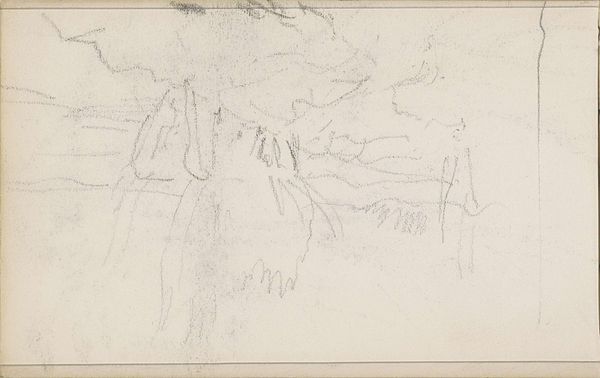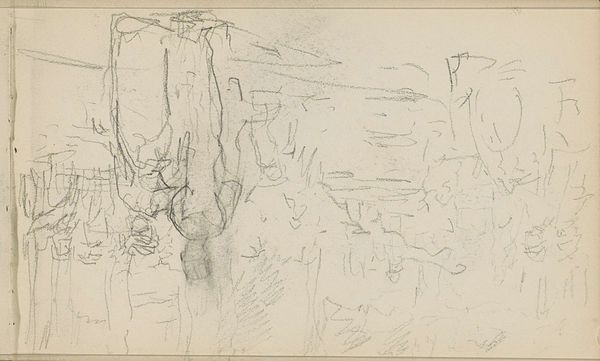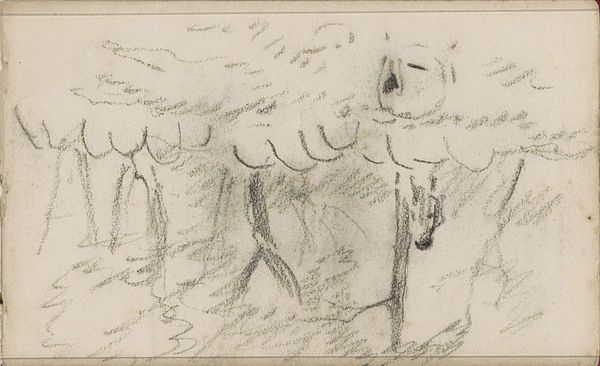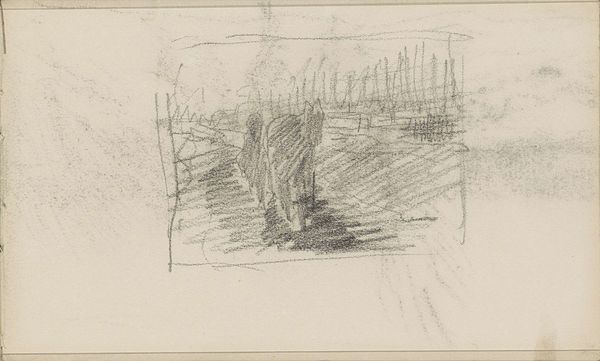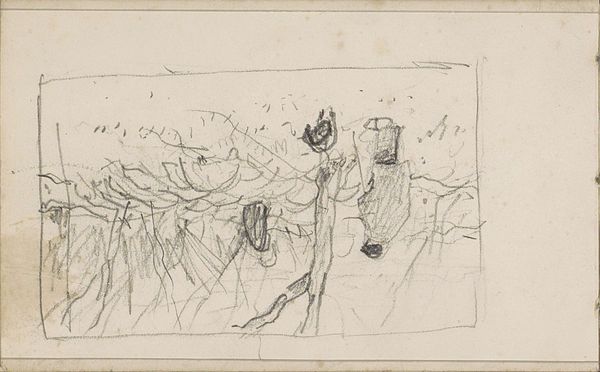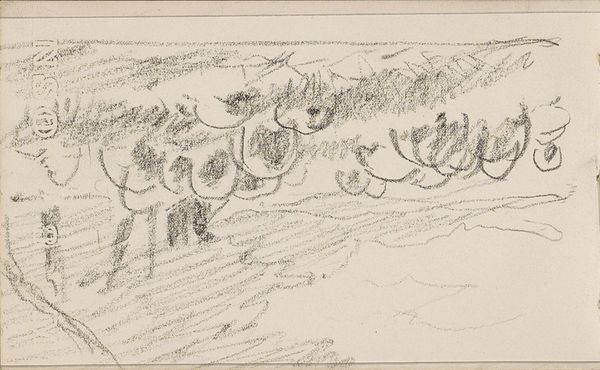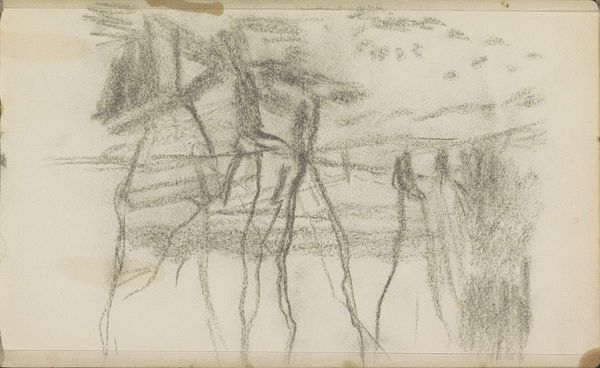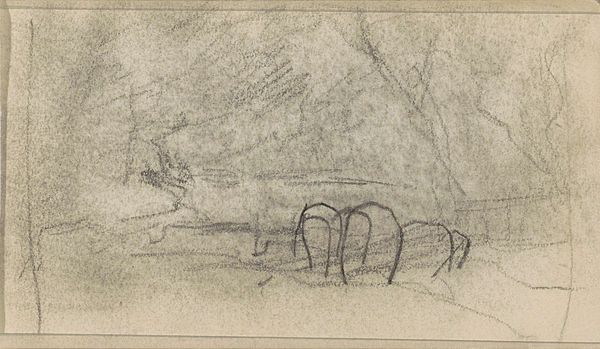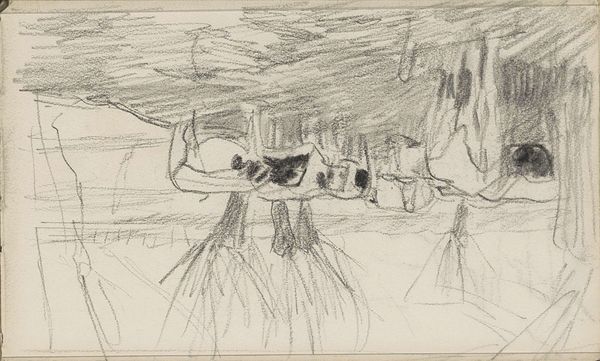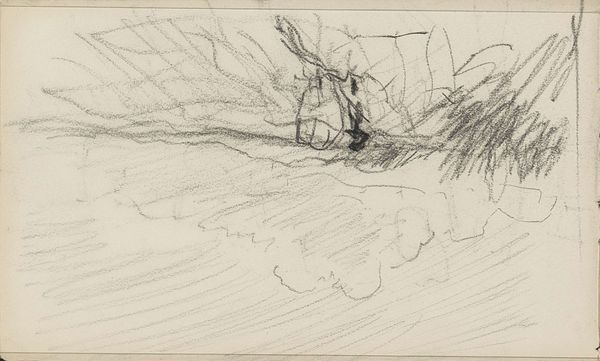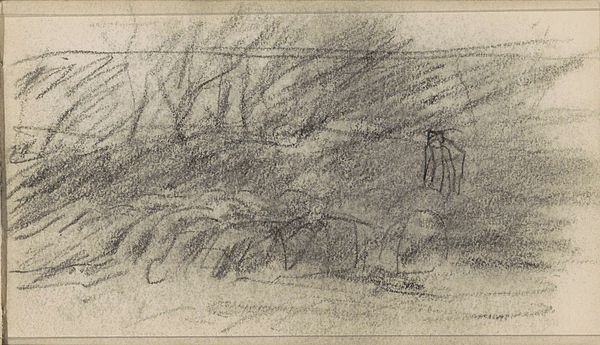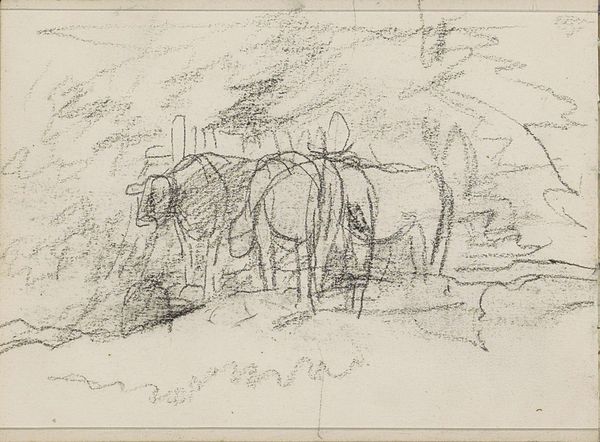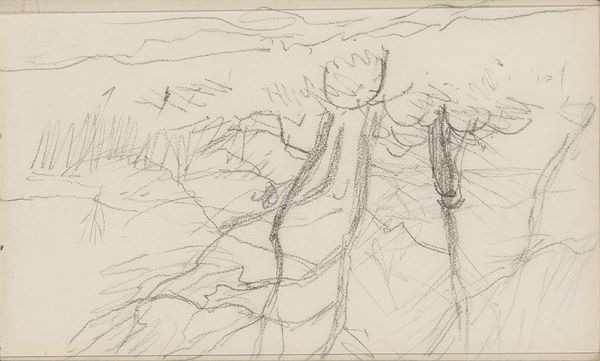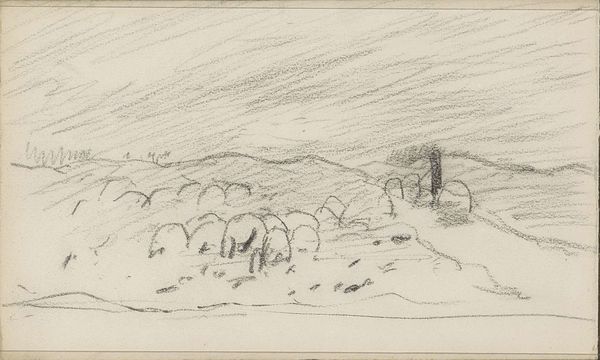
drawing, pencil
#
drawing
#
amateur sketch
#
light pencil work
#
impressionism
#
pen sketch
#
pencil sketch
#
incomplete sketchy
#
landscape
#
personal sketchbook
#
ink drawing experimentation
#
pen-ink sketch
#
pencil
#
sketchbook drawing
#
initial sketch
Copyright: Rijks Museum: Open Domain
Editor: Here we have Anton Mauve's "Herder met een kudde schapen," or "Shepherd with a Flock of Sheep," dating from between 1848 and 1888. It's a pencil drawing, and it feels incredibly immediate, almost like a snapshot of a fleeting moment. What can you tell me about this piece? Curator: This sketch offers us a fascinating glimpse into the artistic process and the evolving role of rural life in 19th-century Dutch art. Think about the social context. Industrialization was rapidly changing the Netherlands, and artists like Mauve were turning to the countryside, in part, as a commentary, sometimes romanticized, on a disappearing way of life. Editor: So, the image of the shepherd becomes…political, in a way? Curator: Exactly. But also consider the rise of plein air painting. Artists wanted to capture the immediacy of the landscape. This sketch, in its quick, impressionistic style, reflects that desire. What do you notice about how the artist chose to render the subject matter? Editor: It feels very informal, not posed at all. Almost like we're intruding on a real moment. I guess, compared to earlier formal landscape painting, this feels a lot more…democratic, accessible. Curator: That's a very astute observation! This accessibility becomes even more pronounced when we look at where the piece resides today, the Rijksmuseum, a very public institution. It says something that a sketch, once private, is now part of the national collection, available for all to see. It is no longer just about aesthetic pleasure; it also speaks about collective identity and the evolving understanding of Dutch heritage. Editor: That really changes how I see it. It’s not just a sketch of sheep. It represents bigger cultural shifts, right? Curator: Precisely! We also have to question who this type of artwork served and whose stories were not considered important enough for artistic representation, Editor: Well, I'll definitely be looking at sketches differently from now on. It seems even these fleeting images can carry significant social weight.
Comments
No comments
Be the first to comment and join the conversation on the ultimate creative platform.
